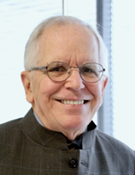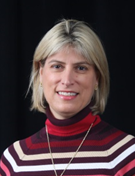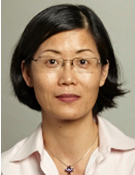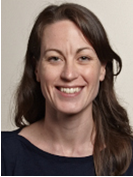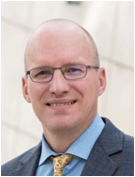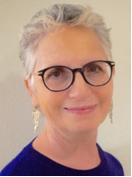Core Research Team
William H. Redd, Ph.D.
Redd is a Professor in the Department of Population Health Science and Policy. He has been engaged in research on psychosocial-oncology and cancer prevention and control for more than 35 years. He is credited for introducing behavioral psychology and behavioral medicine to research and clinical practice in cancer supportive care. His early cancer-related research focused on: 1) behavioral interventions to reduce child distress during medical procedures, 2) distress among parents of pediatric cancer patients, and 3) cognitive behavioral interventions for Post-Traumatic Stress Disorder (PTSD) among cancer survivors. In 2015, Redd received the Lifetime Achievement award from the international society of Psychosocial Oncology. He has received a series of five NIH K-05 Research Scientist Awards and has had NIH research funding during his entire tenure at Mount Sinai. His current research examines: 1) the contribution of circadian rhythm disruption in cancer-related somatic and behavioral problems and 2) the role of systematic light exposure and programmed environmental illumination to ameliorate negative sequela of cancer and its treatment. His mission is to apply behavioral principles to understand and treat negative sequela of cancer and its treatment. He oversees the overall research effort at the Program in the roles of facilitator and mentor.
Heiðdís Valdimarsdóttir, Ph. D.
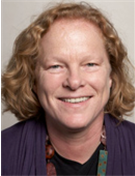 Valdimarsdóttir is an Assistant Professor in the Department Population Health Science and Policy and Professor of Psychology at the University of Reykjavik (Iceland). She has extensive experience in the investigation of psychological and biological factors in individuals with cancer as well as those at high familial/genetic risk for cancer. Her research interests are indeed broad, including: 1) biological correlates of distress and psychobiological reactivity to acute stressors and among individuals at risk for cancer, 2) the development and testing of culturally targeted genetic counseling interventions for minority women to help them with their BRCA testing decisions, 3) the development and testing of interactive CDROM decision tasks to help BRCA mutation carriers with the preventive and surveillance decisions, and 4) the examination of the impact of expressive writing intervention in reducing psychological and biological indices of stress among cancer patient. Internationally, Valdimarsdóttir collaborates with Robert Zachariae, Ph.D., at the University of Aarhus, Denmark, Eveline Bleiker, Ph.D., at the Netherlands Cancer Institute and Birna Baldursdóttir, Ph.D., at the Reykjavík University Iceland. Her current efforts at our Program are directed towards the development and examination of biological and bio-behavioral factors of circadian-effective light.
Valdimarsdóttir is an Assistant Professor in the Department Population Health Science and Policy and Professor of Psychology at the University of Reykjavik (Iceland). She has extensive experience in the investigation of psychological and biological factors in individuals with cancer as well as those at high familial/genetic risk for cancer. Her research interests are indeed broad, including: 1) biological correlates of distress and psychobiological reactivity to acute stressors and among individuals at risk for cancer, 2) the development and testing of culturally targeted genetic counseling interventions for minority women to help them with their BRCA testing decisions, 3) the development and testing of interactive CDROM decision tasks to help BRCA mutation carriers with the preventive and surveillance decisions, and 4) the examination of the impact of expressive writing intervention in reducing psychological and biological indices of stress among cancer patient. Internationally, Valdimarsdóttir collaborates with Robert Zachariae, Ph.D., at the University of Aarhus, Denmark, Eveline Bleiker, Ph.D., at the Netherlands Cancer Institute and Birna Baldursdóttir, Ph.D., at the Reykjavík University Iceland. Her current efforts at our Program are directed towards the development and examination of biological and bio-behavioral factors of circadian-effective light.
Gary Winkel, Ph.D.
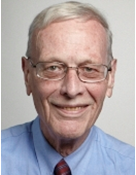 Winkel is a Professor in the Department of Population Health Science and Policy. Before joining the faculty at Mount Sinai, he taught research design and advanced quantitative methods at the Graduate Center of the City University of New York. For the past 18 years, Winkel has been involved in research directly relevant to the treatment of the negative psychological and physical consequences associated with Hematopoietic Stem Cell Transplantation as well as cancer prevention and control. He is directly involved in the research design and statistical analyses for the Program of Tailored Light Therapy. He is central to our efforts in the light research as he is responsible for bio-statistical analyses.
Winkel is a Professor in the Department of Population Health Science and Policy. Before joining the faculty at Mount Sinai, he taught research design and advanced quantitative methods at the Graduate Center of the City University of New York. For the past 18 years, Winkel has been involved in research directly relevant to the treatment of the negative psychological and physical consequences associated with Hematopoietic Stem Cell Transplantation as well as cancer prevention and control. He is directly involved in the research design and statistical analyses for the Program of Tailored Light Therapy. He is central to our efforts in the light research as he is responsible for bio-statistical analyses.
Mariana Figueiro, Ph.D.
Figueiro is the Director of the Lighting Research Center at Rensselaer Polytechnic Institute and Professor of Architecture and Biological Sciences at Rensselaer Polytechnic Institute. Her research pertains to the effects of light on health, circadian rhythms, and lighting for the elderly. She has written numerous scientific articles and has given a TED talk outlining her groundbreaking work. She has been a member of our Program since its inception. She’s integral because she ensures that the light interventions reflect the biophysical properties for circadian entrainment.
Kathryn Sommer, Nina Prescott, and Julia Granski
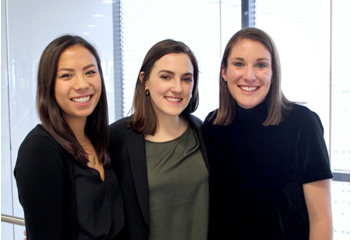 Sommer, Prescott, and Granski are Clinical Research Coordinators for the Program. Both Prescott and Granski joined the team in 2017 after receiving their B.A. in Psychology from the University of Michigan and Hobart and William Smith Colleges, respectively. Sommer received a B.S. in Biology from Haverford College and joined the team in 2018. Together, they are responsible for participant recruitment, the coordination of clinical assessments with study participants, and assisting in data analysis. They also each have managerial tasks and assist Investigators in ongoing and future protocols, grant submissions and correspondence with the International Review Board.
Sommer, Prescott, and Granski are Clinical Research Coordinators for the Program. Both Prescott and Granski joined the team in 2017 after receiving their B.A. in Psychology from the University of Michigan and Hobart and William Smith Colleges, respectively. Sommer received a B.S. in Biology from Haverford College and joined the team in 2018. Together, they are responsible for participant recruitment, the coordination of clinical assessments with study participants, and assisting in data analysis. They also each have managerial tasks and assist Investigators in ongoing and future protocols, grant submissions and correspondence with the International Review Board.
Collaborators
Susan Lutgendorf, Ph.D.
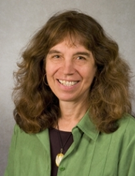 Lutgendorf is a Professor and Starch Faculty Fellow in the Departments of Psychological and Brain Sciences, Obstetrics and Gynecology, and Urology and a member and Staff Investigator at the Holden Comprehensive Cancer at the University of Iowa. Lutgendorf is currently researching how factors such as stress, depression, and social support are linked to biological processes involved in chemo-resistance in ovarian cancer patients. She has also investigated the effects of behavioral and complimentary interventions on quality of life and immune responses in cancer patients. She works with Valdimarsdóttir to explore the biological mechanisms underlying the effects of tailored light intervention.
Lutgendorf is a Professor and Starch Faculty Fellow in the Departments of Psychological and Brain Sciences, Obstetrics and Gynecology, and Urology and a member and Staff Investigator at the Holden Comprehensive Cancer at the University of Iowa. Lutgendorf is currently researching how factors such as stress, depression, and social support are linked to biological processes involved in chemo-resistance in ovarian cancer patients. She has also investigated the effects of behavioral and complimentary interventions on quality of life and immune responses in cancer patients. She works with Valdimarsdóttir to explore the biological mechanisms underlying the effects of tailored light intervention.
Seunghee Kim-Schulze, Ph.D.
Kim-Schulze is the Facility director of the Mount Sinai Human Immune Monitoring Center, where a team of experts specializes in deciphering the complexity of human immune system with cutting edge technology platforms across a broad range of diseases. Her research focuses on human immune responses to cancer in an antigen-specific manner, to define new targets for the development of cancer immunotherapies, ask how these immunotherapies work and why they may fail. Specifically, she has analyses both cellular and proteomic inflammatory and immune markers to determine what chemical response the light treatment triggers in the body of a cancer patient. She directs analyses of immune function associated with lighting interventions.
Christine Rini, Ph.D.
Rini is a social/health psychologist and the director of the Cancer Prevention and Control Program at John Theurer Cancer Center, Hackensack University Medical Center (HUMC). She is currently studying psychosocial factors that augment or hinder adjustment to health stressors in cancer patients and translates findings to create new interventions. Rini is also a Professor of Oncology at the Georgetown University School of Medicine and an adjunct assistant professor in the Center for Behavioral Oncology within the Department of Population Health Science and Policy at Mount Sinai. At Mount Sinai, she is participating in research on using light exposure to reduce negative sequelae among breast cancer patients and ASCT survivors. She oversees our light research at HUMC and is site-principal investigator.
Kate DuHamel, Ph.D.
DuHamel is Attending Psychologist at Memorial Sloan Kettering with expertise in behavior therapy for cancer patients. Her research focuses on three distinct areas: 1) investigation of barriers and supports for colorectal screening among minority populations, 2) development of cognitive behavioral interventions for bone marrow transplant recipients, and 3) quality of life and sexual health among patients and survivors. One of her most important studies was a large randomized clinical trial of cognitive behavioral therapy used in the treatment of PTSD symptoms among ASCT survivors. DuHamel is the principal investigator at Sloan Kettering for the team’s research on light exposure to reduce negative sequelae among breast cancer patients and ASCT survivors.
Deepu Madduri, M.D.
Madduri is an Assistant Professor of Medicine in the Multiple Myeloma Program at Mount Sinai Hospital. She specializes in plasma cell disorders including multiple myeloma, amyloid light-chain (AL) amyloidosis, POEMS syndrome, plasmacytoma and monoclonal gammopathies of uncertain significance (MGUS). Madduri performs a variety of procedures including bone marrow biopsy, and stem cell transplant. Her research interests include immunotherapy with checkpoint inhibitors, and immune effector cells such as Car-T therapy, NK-cell therapy, and Bi-specific antibodies. Madduri oversees patient recruitment and offers guidance regarding bio-medical aspects of hematopoietic stem cell transplantation.
Emily J. Gallagher, M.D., Ph.D.
Gallagher is an Assistant Professor in the Division of Endocrinology, Diabetes and Bone Disease, Associate Program Director for Research for the Internal Medicine Residency Program, and Director of the Internal Medicine Residency Research Track at the Icahn School of Medicine at Mount Sinai. Her basic and translational research focuses on understanding the molecular mechanisms through which systemic metabolic diseases, such as diabetes and dyslipidemia, contribute to cancer progression. She is involved in the investigation of the effects of light exposure on neuro-endocrine function. In her onco-endocrinology clinical practice she treats the metabolic and endocrine complications of cancer therapies. She is central to the team’s examination of endocrine functions associated with cancer and light intervention.
Joanne Mortimer, M.D.
Mortimer is Director of City of Hope’s Women’s Cancer Programs and vice chair and professor of the Department of Medical Oncology and Therapeutic Research. Mortimer has been identified as one of America’s Top Doctors. Her special research interests include the examination of how hormones affect normal and tumor cells. She is currently studying the impact of light exposure to control metabolic syndrome in women undergoing chemotherapy for breast cancer in collaboration with Redd. She directs the overall breast cancer research effort at the City of Hope.
William Dale, M.D., Ph.D.
Dale is the Chair of Supportive Care Medicine and the Deputy Director of Social Sciences for the Center for Cancer and Aging at City of Hope. He is an international expert with consistent funding and over 120 publications in geriatrics, medical decision-making, behavioral economics, quality of life assessment, and health policy in older adults with cancer. He is the lead investigator on a NIA award to develop the City of Hope Geriatric Oncology Research Infrastructure to improve clinical care. He investigates the impact of light exposure on obese frailty in men undergoing Androgen Deprivation Therapy for advanced stage Prostate Cancer in collaboration with Redd.
Lisa M. Wu, Ph.D.
Wu is an Assistant Professor of the Department of Medical Social Sciences, a member of the Robert H. Lurie Comprehensive Cancer Center of Northwestern University Feinberg School of Medicine. She is also an Adjunct Assistant Professor of the Department of Population Health Science and Policy at the Icahn School of Medicine at Mount Sinai. Wu’s research focuses on quality of life and survivorship issues in cancer patients, particularly through intensive examination of the underlying biological and chronobiological mechanisms of the cancer symptom cluster (including fatigue, cognitive impairment, sleep and mood disturbance). Her research also focuses on the development of interventions, particularly through the use of light, to prevent or treat symptoms in the cancer symptom cluster. Wu is responsible for analyses of cognitive function in patients receiving light interventions.
Sonia Ancoli-Israel, Ph.D.
Ancoli-Israel is a Professor Emeritus and Professor of Research in the Departments of Psychiatry and Medicine at the University of California San Diego School of Medicine. Ancoli-Israel has been studying sleep and circadian rhythms for 40 years with over 475 publications. She was the first researcher to study the effect of light on fatigue in cancer patients and was instrumental in Redd’s initiation of the Mount Sinai Program for Bio-behavioral Light Interventions. She provides leadership in the team’s research efforts.

